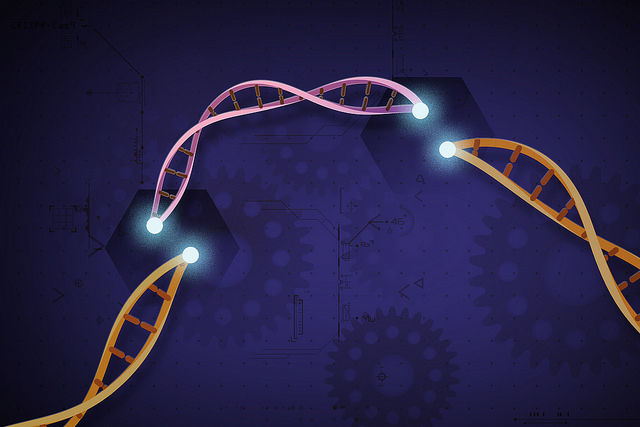CRISPR Madness: Welcome to the Age of Genetic Chaos
By Stuart A. Newman,
CounterPunch
| 05. 05. 2021
The Nobel prize in chemistry awarded last year to the biochemists Jennifer Doudna and Emmanuelle Charpentier for the genetic modification technique called CRISPR cemented the popular idea that a new era of precision manipulation of hereditary material had arrived. The award came on the heels of the unauthorized use of the technique by the scientist He Jiankui in 2018 in China in an effort to produce individuals (twin girls in this case) resistant to HIV, and a flurry of studies in early 2020 showing that accuracy in altering DNA in a test tube or bacteria in a culture dish, did not hold up when applied to animal embryos. Attempts to modify single genes in human embryos (not intended to be brought to full-term) in fact led to “large-scale, unintended DNA deletions and rearrangements in the areas surrounding the targeted sequence,” aka “genetic chaos.”
Dr. He was imprisoned, fined, and fired from his academic position in China for his actions, although it is still not clear to what extent the higher-ups at his institute were aware of them. At...
Related Articles
By Scott Solomon, The MIT Press Reader | 02.12.2026
Chris Mason is a man in a hurry.
“Sometimes walking from the subway to the lab takes too long, so I’ll start running,” he told me over breakfast at a bistro near his home in Brooklyn on a crisp...
By Diaa Hadid and Shweta Desai, NPR | 01.29.2026
MUMBRA, India — The afternoon sun shines on the woman in a commuter-town café, highlighting her almond-shaped eyes and pale skin, a look often sought after by couples who need an egg to have a baby.
"I have good eggs,"...
By George Janes, BioNews | 01.12.2026
A heart attack patient has become the first person to be treated in a clinical trial of an experimental gene therapy, which aims to strengthen blood vessels after coronary bypass surgery.
Coronary artery bypass surgery is performed to treat...
By Staff, ScienceDaily | 01.05.2026
Scientists at UNSW Sydney have developed a new form of CRISPR technology that could make gene therapy safer while also resolving a decades-long debate about how genes are switched off. The research shows that small chemical markers attached to DNA
...




